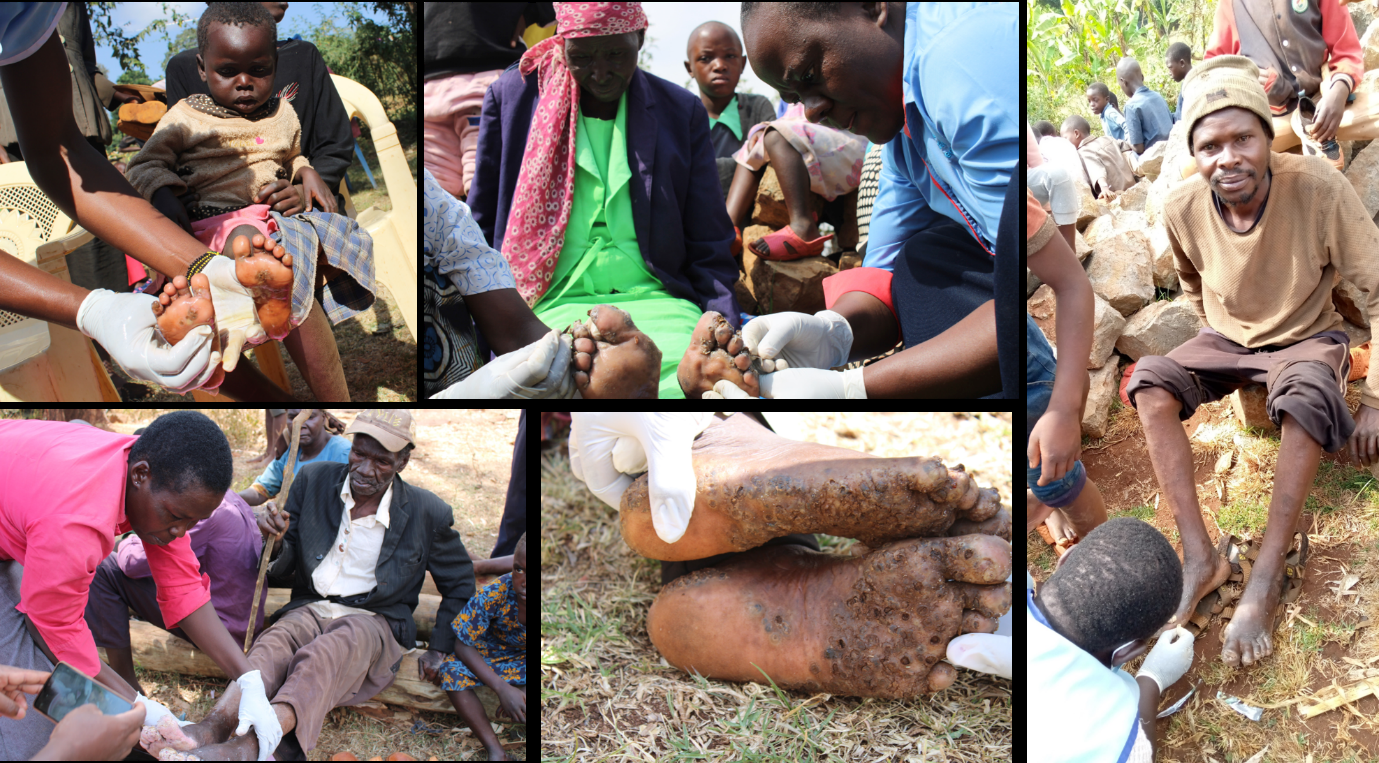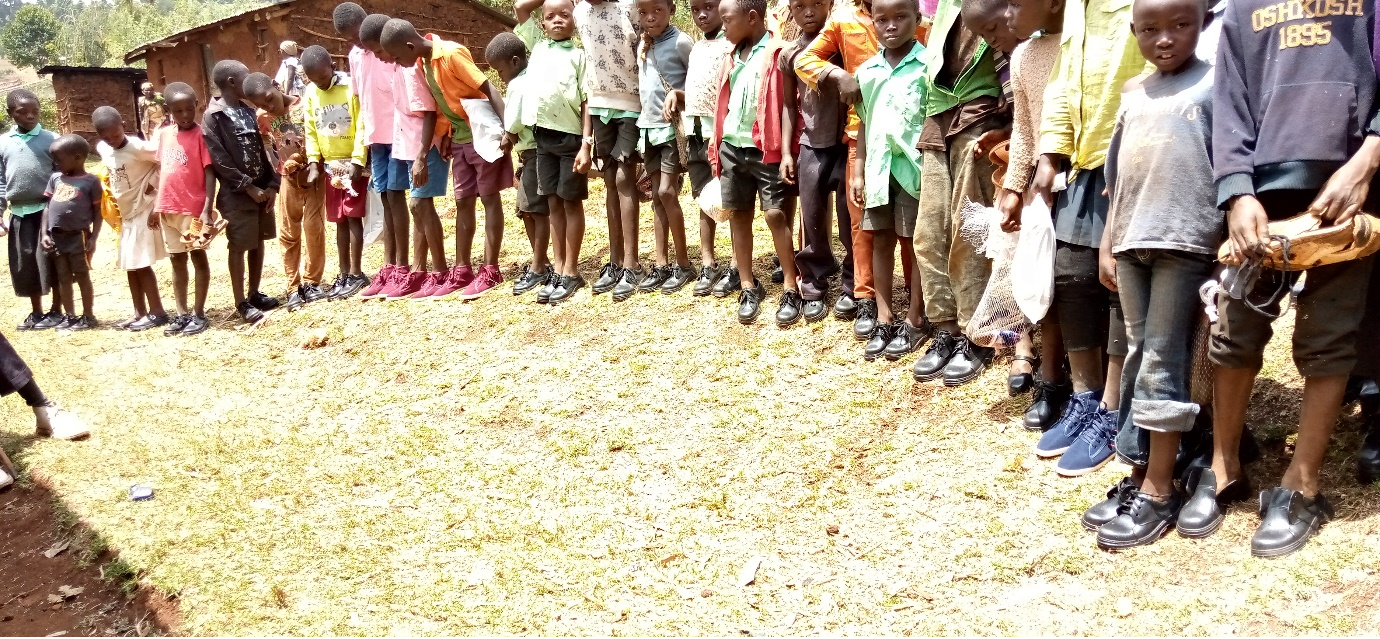
We are very happy to report that the project is now well under way, together with Rotary Doctors in Kenya. The project is being carried out in the Kimondo area in Endebess sub-county, in north west Kenya close to the Uganda border. A Rotary jiggers campaign had previously been carried out here, but the need is great and many more people still need to be treated.
Jiggers are parasitic sand fleas. The female fleas burrow into the skin of their human host - most often the feet - to lay their eggs, causing inflammation that is painful and in severe cases debilitating. Lund International Rotary Club first heard of Jiggers when club member Maria Janson came back from serving as a Rotary Doctor in Kenya and gave a first-hand account of the widespread suffering it causes. Whilst children are most hard hit, with jiggers preventing them from going to school, the whole family is often affected. Treatment and prevention involve cutting the parasites and eggs out of the skin, providing shoes, and sanitizing the floors of households with detergents. The club decided to raise money for a Jiggers project in Kenya and also applied for funding from Rotary U-fonden. U-fonden has matched our contribution; the total cost for this project is SEK 31,410.

The project involves several phases:
Training of community health volunteers and project beneficiaries in identifying, treating and preventing jiggers.
Treatment of jiggers on three consecutive days and distribution of shoes.
Follow-up immediately after treatment, after three months and again after six months
The project results to date are:
30 community health volunteers, 18 village elders and 295 beneficiaries/parents/guardians have received a one-day training.
494 cases have been treated for three consecutive days. 78 of these cases were severe, and were thus given a 5-7 day antibiotic treatment.
405 beneficiaries have each received a pair of shoes. The patient uptake was larger than expected, so unfortunately there weren’t enough shoes for all the patients treated.
201 households have received a sachet of 30g Omo detergent, and a container of Sevin dust (insecticide) for disinfecting their houses.
In the remaining follow-up sessions, the households will be re-visited to assess the effectiveness of the disinfection, and jiggers patients will be re-examined to assess the success of the treatment. The final follow-up will be in August this year; then we will be able to evaluate the sustainability of this project and decide how best to continue supporting the fight against jiggers.
